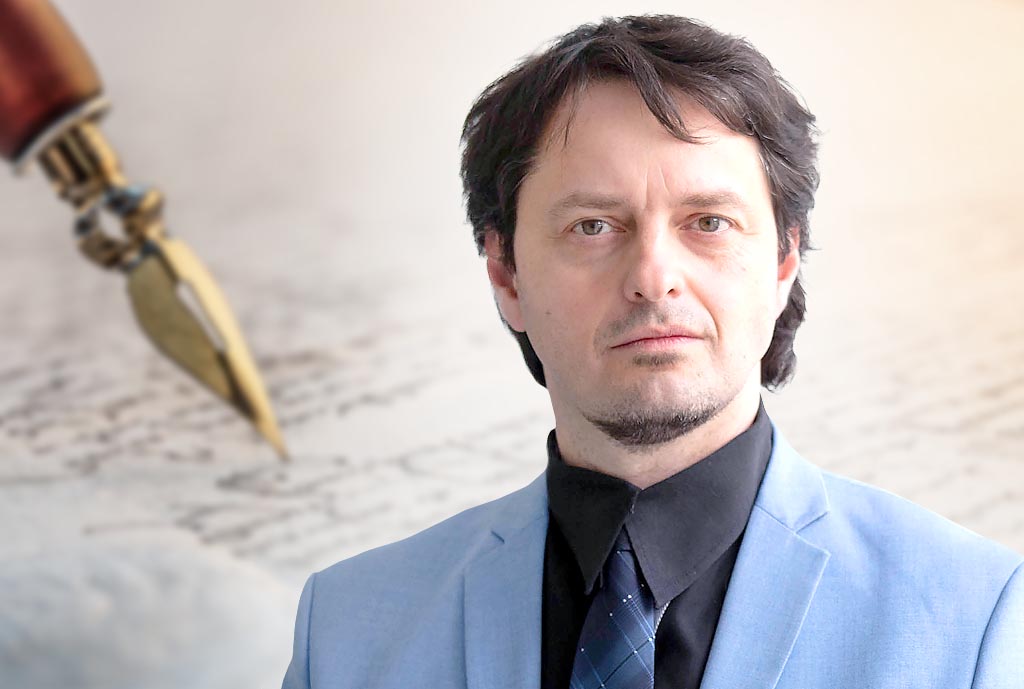By: Mitja Iršič
Researcher Kamil Galeev described how Chechen autocrat Kadyrov hunts down his political dissidents. On the highway from Chechnya to Dagestan, there is a traffic light that is always red. Thousands of drivers pass through it every day, and none of them are punished. Except if someone falls out of favour with Kadyrov. Then, the driver targeted by Kadyrov is punished. He broke the law – he ran a red light. Slovenian judiciary is full of such “red lights” set up by the omnipresent tripartite authority, which has long since completed its march through institutions. The Trenta process has revealed that Slovenian “red lights” are even more absurd than Kadyrov’s “red lights”.
Slovenian judiciary seems very similar to the Russian one. There is a significant emphasis on procedures and formalities, but underneath this façade lies a banana republic, where political elites have completely taken over the judicial branch and mechanisms of state repression. In such a system, we already know that Zoran Janković will never be convicted of anything, and we also know that as soon as elections are approaching, opposition leader Janez Janša will again find himself in the defendant’s seat. This time too, when Golob’s government is collapsing on its own, he had to repeat the exercise.
Let’s set aside the absurdity of the allegations against Janša – namely, that 13 years after buying a property during the real estate boom, he sold it for more than he bought it for. Such cases are, of course, substantively very bizarre and no serious prosecutor outside Slovenia would pursue them. Especially not with the justification that the selling price was higher than the official valuation, given that it can be empirically proven that real estate valuations at that time were up to 20 times lower than market prices. But this “red light” is not the main issue.
More astonishing is the number of bizarre procedural irregularities. Judges should be assigned cases alphabetically. In the Trenta case, there was obvious alphabetical skipping of judges. Why? Supposedly because the other judges were overloaded. But which act specifies the specific parameters indicating which judge was overloaded? The court’s procedural rules do not specify this. It seems to be at the discretion of the court president. When Janša’s lawyer Matoz called her to explain before the panel why she chose the presiding judge Posilovič and lay judges Volk and Žinić, she could not explain why she skipped two other lay judges to get to them, except for a vague explanation that the other lay judges were overloaded – but she did not remember their names and surnames, nor did she know who filled out the special form listing the lay judges. The court president behaved like a used car salesperson – explaining everything broadly, with unnecessary details, digressing into other topics (when suspects do this during police questioning, detectives usually perk up because it is a psychological indicator that the suspect is not telling the truth). In the end, she could not explain the most basic things: who filled out the form determining the lay judges and why Volk and Žinić were selected on May 28th, if the “overloaded” skipped lay judges were assigned another case a day later, on May 29th – how if they were overloaded?!
Only during the questioning of the selected lay judges did we get a hint of why this is important. Lay judge Volk once sympathised with the LDS party, and today, as he claimed, he is completely apolitical. Is he really? Matoz asked him if he had run for the LDS municipal list years ago. He said maybe, but he did not remember. He lost his memory! How convenient. Similarly, lay judge Žinić “did not remember” whether the current minister and SD vice-president Andreja Katić really signed the decree appointing her as head of the legal department in the red municipality of Velenje. Again, amnesia! A cynic might think that lay judges were purposefully skipped until they found the right two who “do not remember” their political connections.
So, what is the difference between the Slovenian judiciary with its unexplained selection of judges and the brutal tyrant Kadyrov, who imprisons his political opponents for the “eternal” red light? In the case of judge selection, it seems that it is even worse than in Chechnya: the “red light” on the “traffic light” turns on when a political dissident drives by. The methods appear more refined, but the end result is the same. The rule of law is clinically dead.

